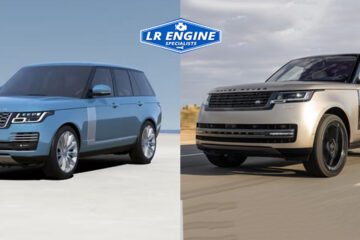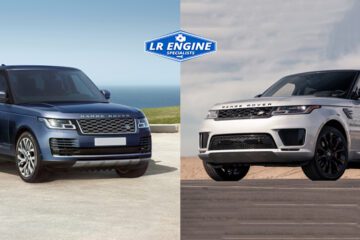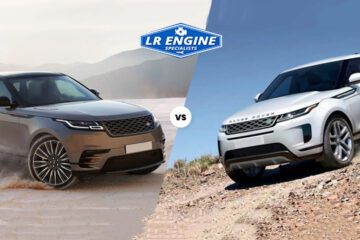Introduction:
The Range Rover 3.0 Engine has set a new standard in the luxury SUV segment, smoothly blending power, efficiency, and refinement. Designed for a commendable driving experience, it delivers robust torque, incredible fuel efficiency, and outstanding off-road capability, even if cruising on the highway or handling challenging terrains.
Luxury SUV enthusiasts often compare it with rivals such as the BMW X5, Mercedes GLE, and Audi Q7, each offering a distinct take on 3.0L engine performance. However, regarding a perfect combination of luxury, capability, and power, the Range Rover 3.0 Engine continues to stand in a league of its own.
Overview of the Range Rover 3.0 Engine
The Range Rover 3.0 engine comes in both petrol and diesel variants, designed to deliver extraordinary performance while maintaining incredible efficiency. It features a modern turbocharging system that improves power output and ensures effortless acceleration.
The Range Rover 3.0 petrol engine delivers an outstanding 394 horsepower and 406 lb-ft of torque. This level of power allows the SUV to accelerate fast while maintaining a refined and composed driving experience. The diesel variant, on the other hand, produces 296 horsepower and 479 lb-ft of torque, making it an exemplary choice for drivers who prioritize fuel economy and long-distance cruising.
Both variants are coupled with an 8-speed automatic transmission that provides effortless gear shifts and maximizes power distribution. The all-wheel-drive (AWD) system further improves traction and guarantees stability on different terrains. Also, the air suspension system adjusts to road conditions, improving comfort and handling.
The basic highlight of this engine is its turbocharging system, which improves responsiveness. Unlike naturally aspirated engines, the forced induction system in the Range Rover 3.0 engine ensures a continuous power supply, making it highly efficient in both city and highway driving.
Performance Aspects of the Range Rover 3.0 Engine
Performance in luxury SUVs is more than horsepower and also about how well the engine, transmission, and drivetrain work together. The Range Rover 3.0 engine shines in multiple aspects, from acceleration and top speed to fuel efficiency and driving dynamics.
The petrol version of the Range Rover 3.0 engine can accelerate from 0 to 60 mph in approximately 5.9 seconds, with a top speed of 150 mph. This level of performance is exceptional for a luxury SUV, especially one designed for both on-road and off-road driving. The diesel version, while slightly slower, delivers superior fuel economy, making it a perfect choice for long-distance travelers.
Fuel efficiency is another vital factor for SUV buyers. The petrol version delivers around 21 mpg combined, while the diesel version has an estimated 30 mpg combined. These figures highlight the diesel engine’s benefits in terms of long-term fuel savings.
When it comes to driving dynamics, the Range Rover 3.0 engine guarantees a smooth and composed ride. The adaptive air suspension modifies driving conditions, while the all-wheel-drive system maintains grip on slippery surfaces. The off-road capability of this SUV is unparalleled, due to features like Terrain Response 2, which automatically regulates the engine’s power delivery based on road conditions.
Reliability is an essential aspect of any high-performance SUV. The Range Rover 3.0 engine is designed for durability, but routine oil changes, cooling system maintenance, and timely examinations are necessary for long-term performance.
Comparison with Other Luxury SUVs
Many luxury SUVs feature robust 3.0L engines, each offering specific performance advantages. The Range Rover 3.0 engine stands strong against top challengers like the BMW X5, Mercedes GLE, and Audi Q7, delivering extraordinary power, refinement, and capability in the segment.
Range Rover 3.0 Engine vs. BMW X5 3.0L Engine
The BMW X5 3.0L engine provides 375 horsepower and 398 lb-ft of torque, making it slightly less powerful than the Range Rover 3.0 petrol engine. However, the BMW X5’s lighter weight gives it a performance advantage in terms of acceleration, reaching 0 to 60 mph in 5.3 seconds.
When it comes to fuel efficiency, the BMW X5 3.0L engine offers a combined 23 mpg, slightly better than the Range Rover petrol version. However, the Range Rover 3.0 engine offers higher off-road capabilities, making it the better choice for adventure seekers.
Range Rover 3.0 Engine vs. Mercedes GLE 3.0L Engine
The Mercedes GLE 3.0L engine generates 362 horsepower and 369 lb-ft of torque, putting it behind both the Range Rover 3.0 petrol and BMW X5 3.0L in terms of sheer power.
The Mercedes GLE’s turbocharged engine offers a comfortable and smooth driving experience. However, the Range Rover 3.0 engine outperforms it in terms of torque delivery and off-road capability. The Mercedes GLE is more emphasize on luxury and on-road comfort, while the Range Rover 3.0 engine provides a more versatile performance.
Range Rover 3.0 Engine vs. Audi Q7 3.0L Engine
The Audi Q7’s 3.0L engine is expertly tuned for ideal balance, delivering an outstanding 335 horsepower and 369 lb-ft of torque for a smooth, powerful performance. It performs well on highways but lacks the off-road capability of the Range Rover 3.0 engine.
The Quattro all-wheel-drive system in the Audi Q7 improves grip on wet and icy roads, but it does not match the Terrain Response 2 system found in the Range Rover 3.0 engine. While the Audi Q7 is a strong competitor in the luxury SUV segment, it falls short in rugged terrain adaptability.
Pros and Cons of the Range Rover 3.0 Engine
The Range Rover 3.0 engine surpasses in many areas, but like any vehicle, it has strengths and weaknesses.
One of its biggest benefits is robust torque delivery, making it a great performer in both city driving and off-road conditions. Also, its all-wheel-drive system guarantees superior stability, even on challenging terrains.
The luxurious ride quality is another remarkable feature. The adaptive air suspension offers a comfortable experience, while the 8-speed transmission ensures effortless gear shifts.
However, fuel economy is a potential drawback, specifically for the petrol version. With an average of 21 mpg, it is slightly less efficient than its competitors. Furthermore, maintenance costs for the Range Rover 3.0 engine can be high due to its advanced engineering.
Conclusion:
The Range Rover 3.0 engine delivers an amazing combination of power, luxury, and off-road capability, making it a top competitor in the luxury SUV segment. While contenders like the BMW X5, Mercedes GLE, and Audi Q7 offer strong performance, the Range Rover 3.0 engine is incredible with its robust torque, adaptive air suspension, and Terrain Response 2 system. Even if you prioritize high-speed performance, fuel efficiency, or durable versatility, this engine provides a well-rounded experience for SUV enthusiasts. Despite slightly higher fuel consumption and high maintenance costs, the Range Rover 3.0 engine remains a superior choice for those looking for a refined but powerful driving experience.
FAQs
How potent is the Range Rover 3.0 engine?
It delivers up to 394 HP and 406 lb-ft of torque for energetic performance.
Is the Range Rover 3.0 engine fuel-efficient?
The diesel variant offers up to 30 mpg, making it a great long-distance choice.
How does the Range Rover 3.0 compare to the BMW X5?
It has more torque and off-road capability, while the X5 is fast on-road.
Is the Range Rover 3.0 engine good for off-roading?
Yes, its Terrain Response 2 system and AWD make it a desirable off-road performer.
What are the downsides of the Range Rover 3.0 engine?
Higher maintenance costs and fuel consumption than some challengers.


